External Resources
Solar geoengineering & governance resources

UNESCO World Commission on the Ethics of Scientific Knowledge and Technology. 2023. Report of the World Commission on the Ethics of Scientific Knowledge and Technology (COMEST) on the ethics of climate engineering
The World Commission of UNESCO on the Ethics of Scientific Knowledge and Technology (COMEST) responds to the demand for “a thorough assessment of the ethical, social, and cultural implications of climate engineering,” building on the set of reports on ethical principles for climate change already developed in 2010-2015 and focusing “on developing a comprehensive perspective on the ethics of climate action, specifically, climate engineering.”
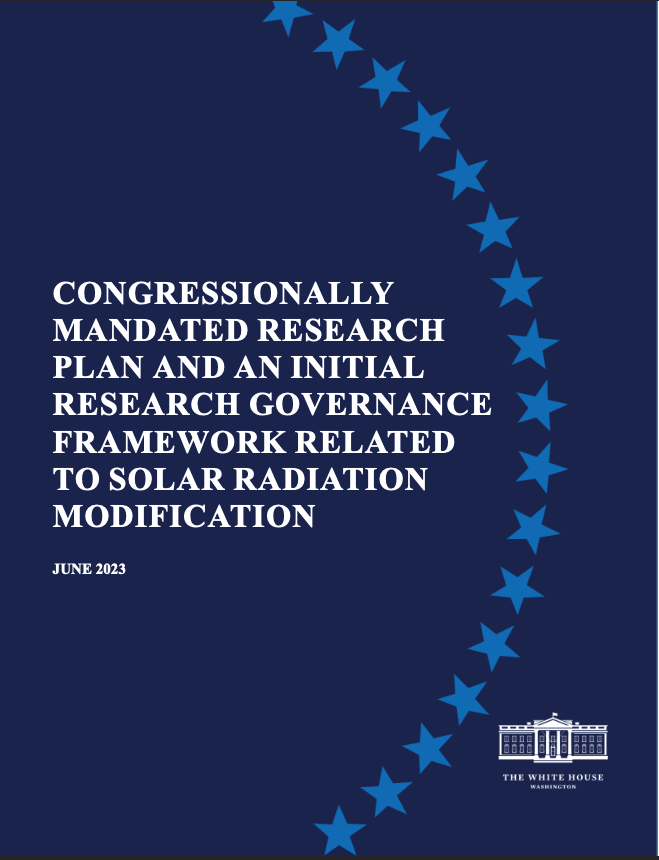
Office of Science and Technology Policy, U.S. Government. 2023. Congressionally Mandated Research Plan and an Initial Research Governance Framework Related to Solar Radiation Management
Congress required the White House Office of Science and Technology Policy to develop a research plan for “solar and other rapid climate interventions” and a “research governance framework to provide guidance on transparency, engagement, and risk management for publicly funded work in solar geoengineering research.”
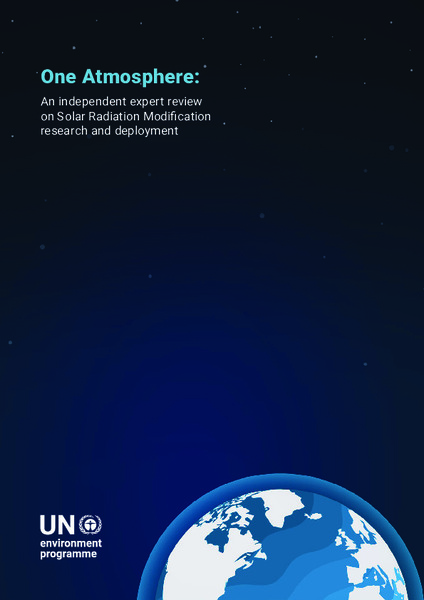
United Nations Environment Programme. 2023. One Atmosphere: An Independent Expert Review on Solar Radiation Modification Research and Deployment.
The United Nations Environment Programme (UNEP) convened a multidisciplinary expert panel to undertake a rapid review of the state of scientific research on Solar Radiation Modification (SRM).

Carnegie Climate Governance Initiative. 2023. Global status of activities relating to Solar Radiation Modification and its governance
The Carnegie Climate Governance Initiative briefing note summarizes key activities related to solar geoengineering and its governance. The note highlights that “with an increasing number of UN, government, and non-governmental actors now beginning to highlight the need for more comprehensive governance of SRM the issue is now firmly emerging onto the international agenda.
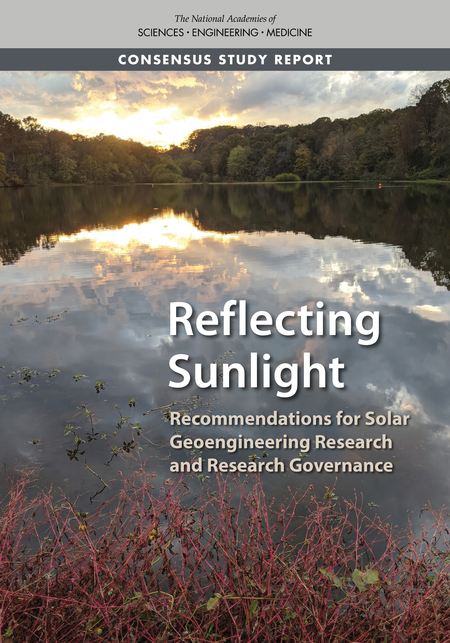
National Academies of Sciences, Engineering, and Medicine. 2021. Reflecting Sunlight: Recommendations for Solar Geoengineering Research and Research Governance.
The National Academies of Sciences, Engineering, and Medicine released a consensus study report that proposed a plan for a transdisciplinary solar geoengineering research program that “would enable research governance and research activities to evolve hand-in-hand, with ongoing mechanisms for stakeholder engagement and input” as well as “international coordination and co-development of research with other countries.”
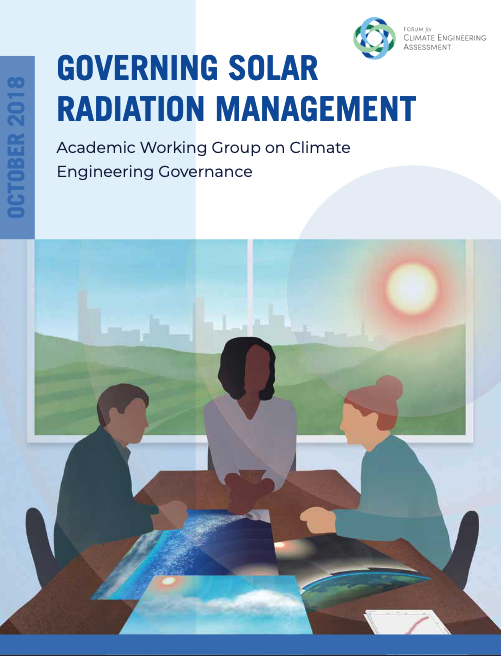
Chhetri et al. 2018. Governing Solar Radiation Management: A Report from the Academic Working Group on Climate Engineering Governance
The Forum for Climate Engineering Assessment at American University convened an expert working group to study solar geoengineering and offer governance recommendations for policymakers and civil society. The consensus report emphasizes the need to govern solar geoengineering and “seeks to
define what it means to govern SRM well in the
near term with an eye toward the future.”
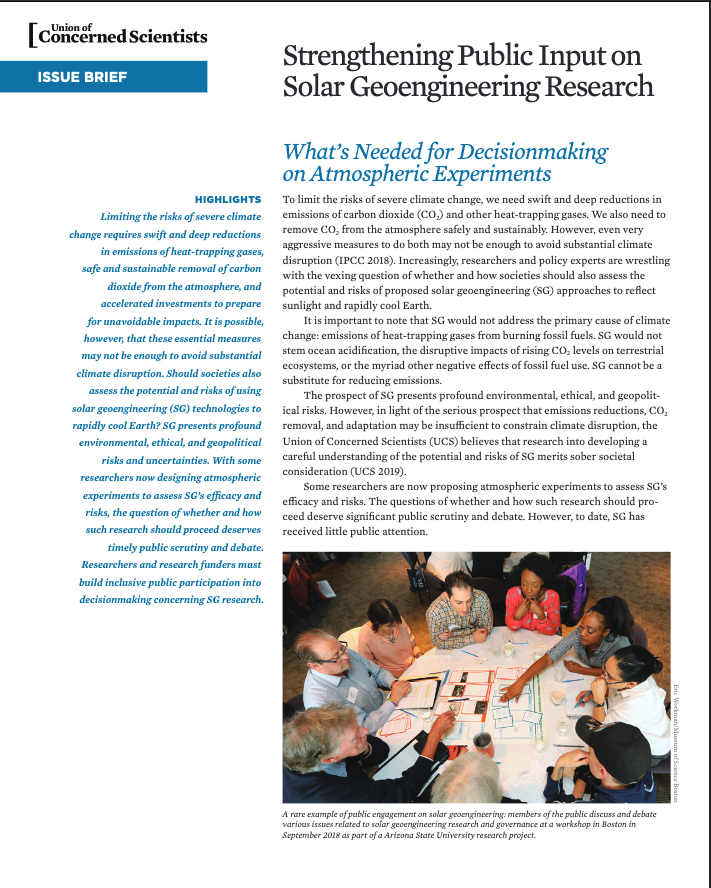
Union of Concerned Scientists. 2020. Strengthening Public Input on Solar Geoengineering Research
This issue brief from the Union of Concerned Scientists emphasizes “the need for inclusive public and stakeholder participation in decisionmaking concerning SG research” and provides recommendations for how “researchers and research funders can meaningfully engage the public and stakeholders in this decisionmaking.”
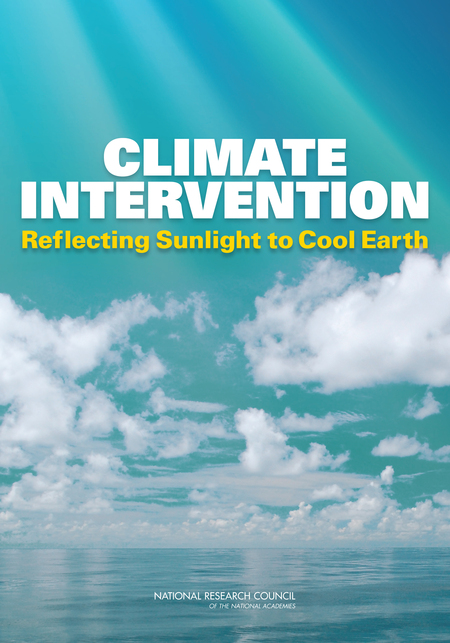
National Research Council. 2015. Climate Intervention: Reflecting Sunlight to Cool Earth.
The National Research Council of the National Academies of Sciences, Engineering, and Medicine released a report emphasizing that solar geoengineering presents poorly understood risks and that a greater understanding of its intended and unintended impacts is needed to inform decisionmaking.
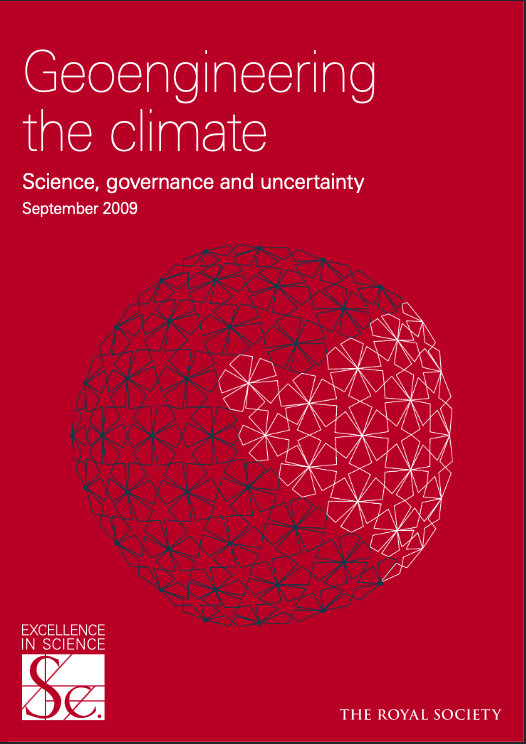
Royal Society. 2009. Geoengineering the climate: science, governance and uncertainty
The United Kingdom’s Royal Society’s landmark report on geoengineering emphasized that geoengineering “should only be considered as part of a wider package of options for addressing climate change”, and the “greatest challenges to the successful deployment of geoengineering may be the social, ethical, legal and political issues associated with governance, rather than scientific and technical issues.”
Justice-focused resources
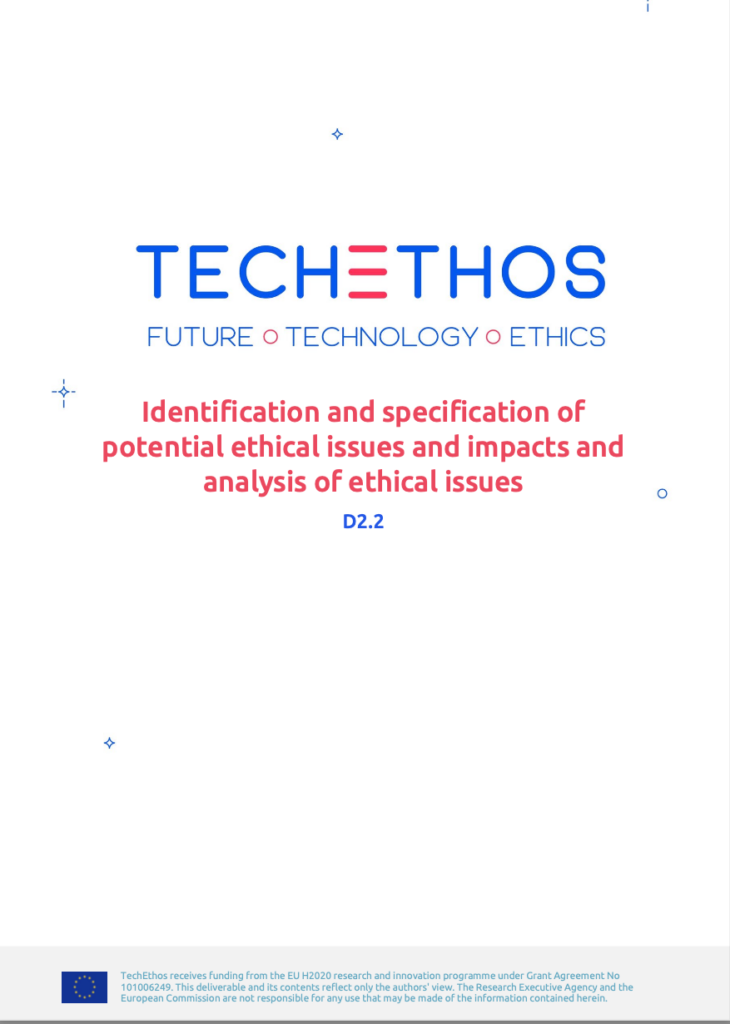
Adomaitis, L., Grinbaum A., Lenzi, D. 2022. TechEthos D2.2: Identification and Specification of
Potential Ethical Issues and Impacts and Analysis of Ethical Issues of Digital Extended Reality,
Neurotechnologies, and Climate Engineering. (Climate Engineering pages 100-115)
Based on literature studies, original research, expert consultation, and digital ethnographies, this report provides an in-depth analysis of ethical issues raised by three technology families, including climate engineering like carbon dioxide removal and solar radiation management.
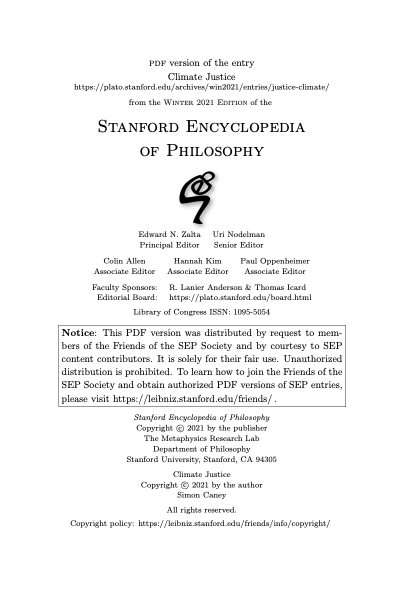
Simon Caney. 2022 Climate Justice.The Stanford Encyclopedia of Philosophy.
This provides an overview of climate justice principles including isolationism and integrationism, intergenerational justice, risk and responsibility, justice and climate policies, and more.
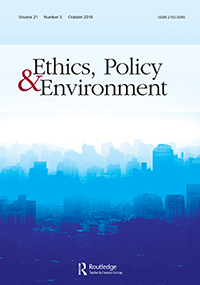
Sikina Jinnah, Simon Nicholson, and Jane Flegal. 2018. Toward Legitimate Governance of Solar Engineering Research: A Role for Substate Actors. Ethics, Policy & Environment.
“This paper draws on the literatures on legitimacy in global governance, responsible innovation, and experimental governance to argue that public engagement is a necessary (but not sufficient) condition for any legitimate SRM governance regime.”
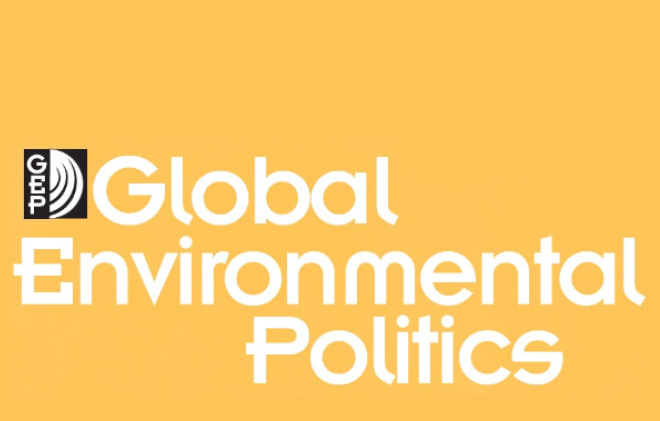
Olúfẹ́mi O. Táíwò & Shuchi Talati. 2022. Who Are the Engineers? Solar Geoengineering Research and Justice. Global Environmental Politics.
This commentary is a response to arguments that advocate for abandoning solar geoengineering research altogether because it perpetuates colonialism and promotes injustice.
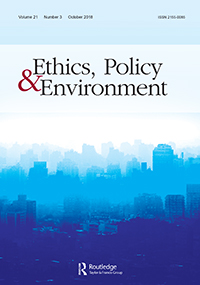
Patrick Taylor Smith. 2018. Legitimacy and Non-Domination in Solar Radiation Management Research. Ethics, Policy & Environment.
This paper explores the limitations of the proposed governance schemes for research and possible deployment of geoengineering strategies and argues that the value of non-domination, including and especially how it relates to global inequality, should guide our thinking about how to legitimately engage in research into solar radiation management.
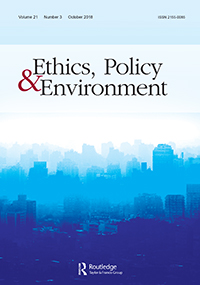
Kyle Powys Whyte. 2018 Indigeneity in Geoengineering Discourses: Some Considerations. Ethics, Policy & Environment.
This essay offers some considerations on the nature of geoengineering discourse as it pertains to Indigenous peoples and raises some considerations that suggest that discourse does not articulate ethics and justice issues in ways that are salient to Indigenous peoples as they grapple with today’s climate change ordeal.
Select workshop reports
August 2022. Americas Conference on Solar Radiation Modification: Science, Governance and Implications for the Region, University of the West Indies, Kingston, Jamaica.
